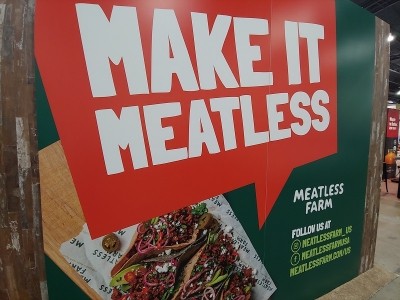Veganuary boosts plant-based, but doesn't take a bite out of meat sales

Research from the University of Surrey has demonstrated campaigns to promote plant-based alternatives do not impact meat consumption.
The study, published in journal Public Health Nutrition, examined UK supermarket sales over ‘Veganuary’, a month when retailers and manufacturers focus on promoting plant-based products and raising awareness of vegan alternatives. Charting weekly sales data across January 2021, the researchers detected a ‘significant’ 57% jump in plant-based sales. Figures were compared to sales before and after the Veganuary campaign period in November 2020, February, and March 2021.
But while shoppers might have opted to buy more plant-based products, they did not reduce meat purchases concurrently.
"Our study suggests that while retail-led campaigns are driving increased sales of plant-based, we are not yet seeing meat replacement at scale, which is key to drive progress toward healthy, sustainable diets,” suggested Joanna Trewern, lead author of the study from the University of Surrey.
Does this mean people are simply buying more when plant-based products are heavily promoted? The short answer is yes. “It is possible to conclude that during this period (January 2021), consumers were buying more food overall, and not necessarily replacing meat products with plant-based products as was hoped,” Trewern told FoodNavigator.
However, she added, it isn’t possible to conclude whether or not this resulted in either higher levels of food waste or increased levels of processed foods in people’s diets given ‘natural whole foods were also promoted’ and these metrics weren’t measured in the study.
The importance of price parity
The increase in plant-based product sales was most significant at superstores, and in low-income areas. The researchers concluded this suggests retailer efforts to make plant-based products more affordable ‘paid off’.
Trewern said that price, alongside some other actions from the industry, could help support transitioning people towards more plant-based diets. Commenting on strategies to promote longer-term uptake of plant-based, she pointed to ‘continued price parity, i.e. plant-based products not costing more than meat’.
Additionally, Trewern advocated ‘skills training and education’ on sustainable diets, and eating and cooking with plant-based foods with a focus on vegetables, legumes, pulses. From an industry perspective, she suggested ‘taste tests and more marketing of plant-based foods, combined with fewer promotions on and marketing of meat products’.
“Retailers have an important role to play in enabling the adoption of healthier, more sustainable consumer diets. It’s great to see them taking action, but more is needed to reduce our reliance on meat and dairy,” the academic suggested.
Current UK figures suggest average meat consumption exceeds Government recommendations. The National Food Strategy recommended a minimum 30% reduction in meat consumption to support our nation to reach Net Zero by 2050, in line with Government climate commitments.
"For there to be any chance of meeting UK climate change targets, Government, food companies, civil society, scientists, and health professionals need to work together urgently to implement action plans and policies that can deliver swift and sustained change,” Trewern argued.

























